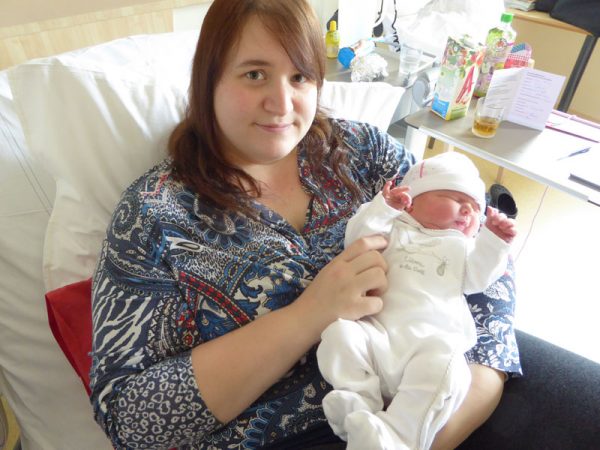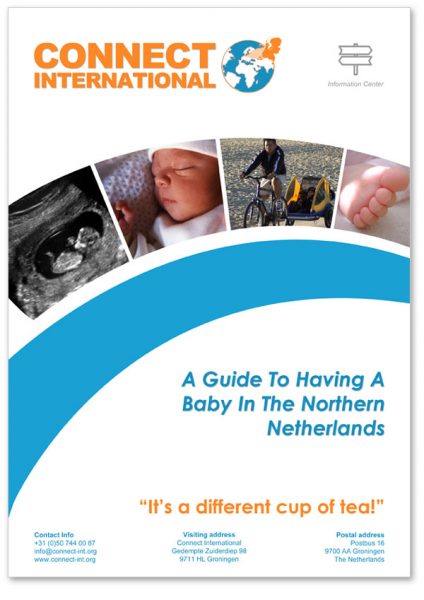Back in May I gave birth to my lovely baby girl. She is my first child, so everything was very new. It was also my first intensive use of the Dutch health system. Many of the things I expected (from my knowledge of the UK system) were there, but also plenty of new things and even some things I expected weren’t there.
Midwife or doctor?
I think one of the main differences is that, unless you have medical reasons, you will have all your check-ups with a midwife (verloskundige). You will rarely, if at all, see a doctor- even at the delivery. But that might not be such a bad thing! During my pregnancy I had all my check-ups at the gynaecologist (due to medical reasons), but also continued to see the midwife as part of a Centering Pregnancy learning group (https://goo.gl/f0jL3Q). By the end of my pregnancy I had a much better, trusting relationship with my midwife than my doctor, mostly because I always saw a different doctor on each hospital visit.
Preparation
I knew a bit about babies, having helped my sister with her two. But the idea of having my own little bundle of joy to look after was a bit daunting! Luckily there are a number of groups and courses you can take part in before baby arrives to help prepare. There is yoga, fitness groups for pregnant women, information courses and more. I signed up for an information course (as that was what I was looking for), and it helped me prepare myself for the delivery and what to expect during the pregnancy and the couple of months after. You can ask your midwife for courses near you. And check with your health provider if they will cover the cost of the course.
No pain
I couldn’t bring myself to be truly Dutch when it came to pain management during the birth. While a large number of Dutch women decide to give birth without anything for the pain, if you do want pain medication you should make it clear before you actually go into labour. If you want pain medication then you are transferred from the care of a midwife to that of a gynaecologist, and you won’t have the option of a home birth.
The main difference I found with the pain medication options was that ‘Gas and Air’ was not available. It was either nothing or an epidural or morphine pump. I used the morphine pump as the epidural failed to work for me. Some hospitals also have other options, and if you do a pregnancy course, they will often go over exercises to help relax and reduce the pain during labour. Speaking with your Midwife about what your expectations are is very important, and if you will be giving birth in a hospital, attend an information evening or request an appointment where they go over your options. And whatever you decide, note it in your birth plan.

Back home but not alone
I stayed in the hospital for a grand total of 24 hours before I was allowed to go home. Before we left the hospital we called our Kraamzorg to let them know, and agreed that someone would be around at the house a few hours later, so we had a bit of time to settle in first. I think the Kraamzorg has to be the best part of the maternity experience here in the Netherlands. For at least a few days after the birth you have someone who comes to the home, checks you are doing well and recovering, checks baby is doing well, and helps in getting used to the new role of ‘Mom’. They are also there to help as you get acquainted to breast feeding and, if you already have children, can help send them off to school and pick up.
Not just about physical care
After pregnancy, emotions and hormones are running high, and sleep and rest will be running low. Getting used to the new role of ‘Mom’ was exhausting for me mentally. Even before the birth I had started to experience a lot of anxiety about doing everything perfectly, and all the things that ‘could go wrong’. Here I found the care of my midwife amazing, without me saying anything she asked how things were going and if I would like a private appointment to talk. Thanks to her prompt, I followed that up with an appointment with my doctor and was referred quickly for mindfulness training. After the birth my anxiety grew worse. My doctor came by the house to check how things were going and was amazingly supportive. She listened to how I was feeling and referred me for extra support to help me with my postnatal anxiety.
If you are thinking about starting a family while living here in the Netherlands, or are pregnant, Connect International has an information booklet that covers many of the aspects of pregnancy, birth and raising children. The booklet is freely available to download for Connect International members.

 +31 (0)50 367 71 97
+31 (0)50 367 71 97  info@connect-int.org
info@connect-int.org